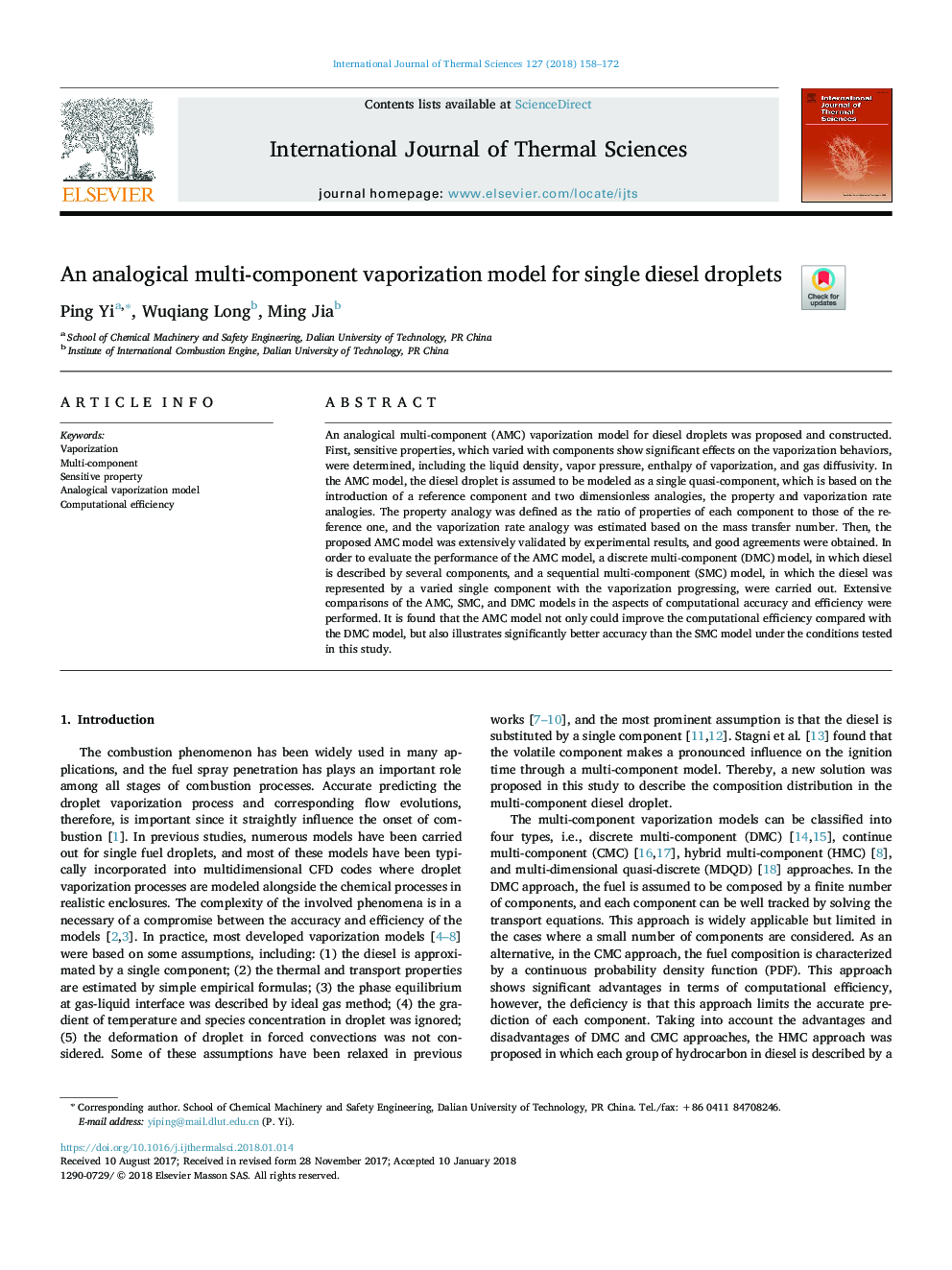| Article ID | Journal | Published Year | Pages | File Type |
|---|---|---|---|---|
| 7060759 | International Journal of Thermal Sciences | 2018 | 15 Pages |
Abstract
An analogical multi-component (AMC) vaporization model for diesel droplets was proposed and constructed. First, sensitive properties, which varied with components show significant effects on the vaporization behaviors, were determined, including the liquid density, vapor pressure, enthalpy of vaporization, and gas diffusivity. In the AMC model, the diesel droplet is assumed to be modeled as a single quasi-component, which is based on the introduction of a reference component and two dimensionless analogies, the property and vaporization rate analogies. The property analogy was defined as the ratio of properties of each component to those of the reference one, and the vaporization rate analogy was estimated based on the mass transfer number. Then, the proposed AMC model was extensively validated by experimental results, and good agreements were obtained. In order to evaluate the performance of the AMC model, a discrete multi-component (DMC) model, in which diesel is described by several components, and a sequential multi-component (SMC) model, in which the diesel was represented by a varied single component with the vaporization progressing, were carried out. Extensive comparisons of the AMC, SMC, and DMC models in the aspects of computational accuracy and efficiency were performed. It is found that the AMC model not only could improve the computational efficiency compared with the DMC model, but also illustrates significantly better accuracy than the SMC model under the conditions tested in this study.
Related Topics
Physical Sciences and Engineering
Chemical Engineering
Fluid Flow and Transfer Processes
Authors
Ping Yi, Wuqiang Long, Ming Jia,
